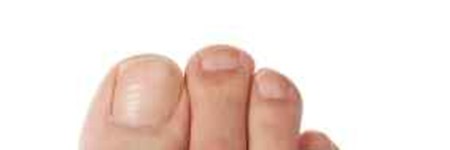Gout diet
DEFINITION
The aim of the diet for Gout is to minimise intake of purines
which are metabolised into Uric Acid, to ensure adequate flushing
of the kidneys and to assist in weight control.
which are metabolised into Uric Acid, to ensure adequate flushing
of the kidneys and to assist in weight control.
DESCRIPTION
Gout results from either an overproduction or reduced
excretion of uric acid. High levels of uric acid in the blood cause
abnormal deposits of uric acid crystals in the joint fluid. Uric
acid is a by-product of compounds called Purines. While Purines do
not actually cause Gout to occur, they may trigger an attack in a
person who already has Gout by raising the uric acid levels in the
blood. A Purine Restriction diet does not lower the uric acid
levels enough to be effective as the only treatment for Gout. The
Diet should be followed in conjunction with prescribed
medication.
excretion of uric acid. High levels of uric acid in the blood cause
abnormal deposits of uric acid crystals in the joint fluid. Uric
acid is a by-product of compounds called Purines. While Purines do
not actually cause Gout to occur, they may trigger an attack in a
person who already has Gout by raising the uric acid levels in the
blood. A Purine Restriction diet does not lower the uric acid
levels enough to be effective as the only treatment for Gout. The
Diet should be followed in conjunction with prescribed
medication.
- DIET SHOULD BE HIGH INVITAMIN E – reduces the
inflammation associated with Gout. Sources include brown rice, nuts
and wheat germ. - WATER. People with Gout have a high risk of developing kidney
stones. At least 3 litres of water per day is recommended to reduce
this risk. - CHERRIES. Recent studies show eating cherries or cherry juice
can reduce the pain and inflammation of Gout. About 250 grams or 1
cup of juice per day is recommended.
DIET SHOULD BE MODERATE IN
- VITAMIN C. The role of Vitamin C in Gout is complicated. In
small doses, vitamin C helps remove uric acid from the tissues and
excretes it through urination. However, if vitamin C intake is too
high it may actually increase the risk of a Gout attack or kidney
stone formation. It is recommended you seek medical advice about
the amount of vitamin C you should have in your diet.
DIET SHOULD BE LOW IN
- PURINES. Avoid red meat, liver, kidney, heart, sweetbread,
brains, pate, sardines, herrings, anchovies, mackerel, caviar,
mussels, meat extracts, gravies, yeast products, dried peas and
legumes. See the Purines topic for a complete list. - ALCOHOL. Alcohol, particularly beer, is high in purines and
often precipitates an acute attack of Gout. - FRUCTOSE. Large amounts of refined fructose (fruit sugar) can
raise uric acid levels in the blood. Avoid soft drinks, cordial,
sweet bakery products and desserts. Natural fructose (found in
fresh fruit) is acceptable. - SATURATED FATS. These increase the risk of obesity, which may
cause more frequent or severe attacks of Gout. Avoid butter,
pastries, full-cream dairy products and meat fat. - VITAMIN A. In high doses vitamin A may enhance the production
of uric acid. Avoid liver and oily fish (herrings, sardines).
Betacarotene from yellow and orange fruits and vegetables does not
have the same effect and is safe to eat.
SAMPLE MEAL PLAN
The following diet has been suggested for this
condition.
condition.
BREAKFAST
- 2 glasses water.
- 1 cup branflake cereal with low fat milk or 1 egg, boiled or
scrambled with 1-2 slices wholemeal toast (no butter) or creamed
corn on 1-2 slices wholemeal toast (no butter). - One handful of cherries or half a glass cherry juice. Tea
or weak or decaffeinated coffee with low fat milk.
MORNING TEA
- 2 wholegrain crispbread/biscuits with tomato and low-fat
cottage cheese. - 2 glasses water.
LUNCH
- 2 slices wholemeal bread or 1 bread roll or 2/3 cup steamed
rice, pasta. - 1/4 cup of chopped chicken or 1 egg, curried or 1 slice
cheese. - Salad or vegetable soup as desired.
- One handful of cherries or half a glass cherry juice. Tea
or weak or decaffeinated coffee with low fat milk.
AFTERNOON TEA
- Small tub of non-fat yoghurt with fruit or one handful of
unsalted nuts. - glasses water.
DINNER
- Vegetable soup.
- 100-150g lean chicken with low fat flavourings such as fresh
herbs, spices or lemon juice. - 1 medium steamed potato or 100g oven fry low fat chips or 2/3
to 1 cup steamed rice, noodles, pasta. - Plenty of green and orange vegetables or salad (limit beans,
peas, spinach, mushrooms). - One piece fresh fruit or 1/2 cup stewed, tinned fruit with low
calorie jelly. - Tea or weak or decaffeinated coffee.
- 2 glasses water.
- Daily allowance: 300mls low fat milk.
REMEMBER
- Avoid high purine foods and eat moderate amounts of
intermediate purine foods. - Drink 8 or more glasses water.
- Eat plenty of vegetables.
- Avoid alcohol.
- Control the weight.

